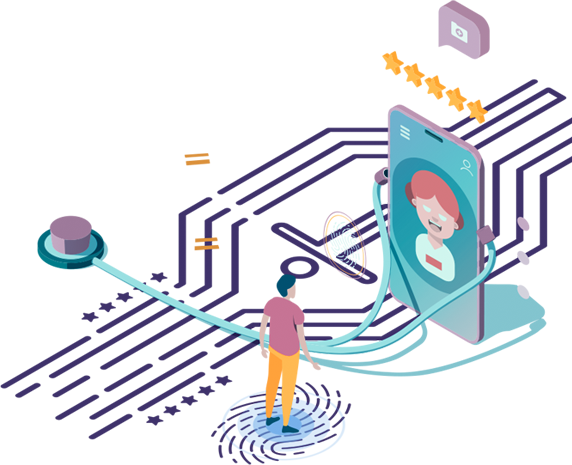A crisis doesn't make appointments, so you may not have time to look for a face-to-face therapist when it hits you. That's when an online counselor is the ideal choice.

Dr. Susan "Shrinklady" LaCombe
Hello, my name is Dr. Susan LaCombe, publisher of myShrink.com.
As a practicing Psychotherapist for the past 20 years . . .
. . . it's been all too often seeing my clients in crisis. And when we're in crisis, we're essentially alone. It's like being adrift on the ocean...when no one's looking for you.
Maybe that's why you're here, hoping to find some way out.
As much as you might feel that you are. help is available.
In fact, I hope to help you, right now.
Online Crisis Counseling
Free VS Fee
When you're looking for someone to talk to you have a choice: paid and free services. And fee-based services are either online or face-to-face.
Free crisis lines are easier on the budget 😉 and the services are provided by trained volunteers. In a pinch, they provide an instant connection with another person. Look for 'Free Online Counseling' below to access them.
There are also advantages to fee-based online counseling:
Finding Online Counseling
A crisis doesn't make appointments, so you won't have time to look for a therapist when it hits you.
(In any case, I'll bet you're not going to reach a face-to-face counselor at midnight on a Saturday anyway!)
Free Online Crisis Counseling
These organizations are staffed with trained volunteers 24/7 and offer both in-person and email support. Don't hesitate one minute to give them a call.
USA: Toll free: 1-800-784-2433 The National Hopeline Network & USA users: USA Hotlines
Befrienders is a world-wide organization. When you visit their page, you'll find a quick and easy system for getting the local number for your area
Samaritans is an organization for folks living in either the United Kingdom or Ireland.
The service below does not offer "crisis" counseling. However, you can access free counseling sessions with their trainees (ie. the service isn't immediate - you sign up for an appointment):
These are students in training: you can also get free sessions with a trained counselor if you are willing to be part of a training session. See page for more details.
Call the schools offering Masters and / or Doctoral programs in counseling. Sometimes, a school has a clinic where students practice their craft. Often the students receive a lot of expert help and only carry a small number of clients. This extra attention can be beneficial.
If your work offers to pay for courses, why not take one at your local university. Even a related course in psychology or counseling can help you understand your process in therapy much better. As a student you may also qualify to receive the services at the counseling center on campus.
How to tell you're in crisis - some examples
Anyone can be in crisis.
There are many reasons for any one person to be in crisis. There's no need to question whether it's a valid reason cause everyone deserves to get the help they need.
Here's a partial sample of the kinds of concerns that create crises for folks. Your reason for feeling the way you do may not be the same. Regardless, that's okay.
Don't want to talk to anyone?
Many of the online crisis counseling lines also offer email support. So if you feel too uncomfortable in speaking with anyone at the moment, consider email. The organizations listed above, offer 24/7 email support.
You should also know that when we're feeling overwhelmed we can't always think clearly. This is why when we're feeling this way, it's helpful to have someone to talk to.
Yet, I also know (from my own personal experience), that one of the hardest things to do is to reach out during these times. I encourage you to make that extra effort to do so.
In a crisis state, not sure if you can keep going? Consider these stories on Reasons for Living.
Especially for Teens
Are you looking for help for your friend? Check out this great Canadian online crisis counseling resource with loads of games and information about going to counseling and how to help your friend:
Nineline Information for teens and kids. Operated by Convenant House. Counselors 24/7 1-800-999-9999.
Current or former foster care youth? Free psychotherapy at ahomewithin.org
For Kids
How to tell your friend or family member is in crisis
The most obvious way to tell if someone might be in crisis is if they seem drastically different from the norm. They're speaking and behaving in ways that are uncharacteristic for them - in ways that puts them or others in danger.
You may even know someone in your life who is characteristically "troubled". You're used to making accommodations for their sometimes "strange" behaviour.
However now that person has changed even more and for the worse. These are signs to look for that would indicate they may need help.
Feel free to use the crisis lines to check to see how you might get help for them. This isn't an exclusive list and someone need not present with all these symptoms for you to reach out:
Don't forget - being around someone in crisis is enormously unsettling for anyone. You can get help for that as well!
What to do while waiting for help
Dealing with someone who's a danger to themselves or others
I've only been in a life-threatening situation twice in my life. Thankfully, my instincts kicked in to help me contain the situation. Hopefully, it's not a common occurrence in your life as well.
When someone's in crisis and acting out it's important to understand that this 'hyper alert' survival mode will make them more guarded / paranoid than usual.
In this state, the more reptilian parts of the brain takes over. It means their cognitive functioning (their ability to reason) will be hampered.
Don't underestimate their capabilities though. They may not be able to sit down to do a crossword puzzle, they are however, extremely tuned into certain triggers.
You may find for instance, that he or she is uncommunicative and your words are twisted around against you.

Brain Fact: The higher one’s nervous system activation, the more likely one is to interpret the world based on past negative events.
For example, you might say:
"I do care about you".
In reply, he or she might say:
"I know what you're trying to do, you're trying to manipulate me".
That's why you need to be authentic and empathic with what the person is saying. Nodding your head thoughtfully in response to their remarks can be helpful.
You need to be present with the person and avoid any topic that might be challenging or argumentative. Individuals in this state tend to be easily triggered.
It's best to speak clearly - not too fast or loud - and with a confident yet 'modulated' tone of voice. A modulated voice is almost sing-song like. It has rhythm to it. It's the gentle voice we use to calm a baby.
Now, in saying this, it's extremely important that you don't talk down to the person. In this state, they're extremely sensitive to any type of power moves. They have a sharp built in "BS detector".
They're also sensitive to their personal space. It's best to give them space but not so much distance that it looks unusual. Otherwise, they're likely to interpret this as: "You think I'm "crazy". That's enough to set them off again.
Maintain good eye contact but not intensely so. A soft gaze in your eyes is best (Lovers use this type of gaze as do mothers with their infants).
Your steadiness is calming. In effect, your nervous system becomes a "container" for theirs.
Act normal as much as you can. If you could engage in a minor task, (eg. putting away the dishes, fluffing up the pillows, knitting etc.) It's not only calming for them - it will help you to maintain your steadiness.
Their behaviour can be very unpredictable. Just do your best.
Helping someone who's emotionally upset
If the individual is not so much agitated as tearful or in obvious emotional distress it's very helpful - if they allow - for you to hold their hand or to convey the idea "I'm here" with your eyes and your presence.
Hugs - if welcomed - can be immensely calming and reassuring as well.
When you are ready for making changes
Online crisis counseling may be the beginning of something bigger for your life. Counseling isn't only for dealing with problems when they feel unmanageable. But sometimes it's a good time to start.
Counseling has made my life so much better. Maybe this is the right time for you to be thinking the same thing?
If you'd like information on getting started you might start at tips for choosing a good therapist.
Other myShrink resources
Related Articles
Do you subscribe to a religious belief?
A few counselors who do online crisis counseling offer free online counseling. I've declined to list them here.
However, if you search under different religious denominations (i.e. Free 'Christian' Counseling etc.) you will find them.


